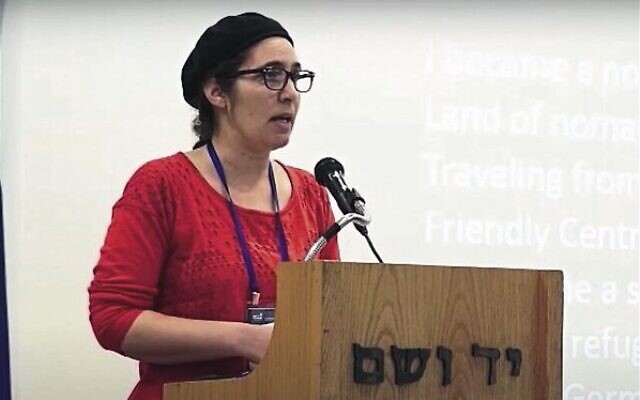Jewish historian rejects prestigious Polish award
JEWISH American historian Eliyana Adler has refused to accept an award worth $19,000 from the Polish government’s Pilecki Institute, arguing that it suppresses work by “historians who strive to show the complex and indeed tragic aspects of Poland’s wartime past”.
Adler, an associate professor at Penn State University, was given a newly-inaugurated award for scholarship on 20th-century Poland, the Pilecki Institute’s specialty, for her 2020 book, Survival on the Margins: Polish Jewish Refugees in the Wartime Soviet Union. The honour was to be co-awarded by the Auschwitz memorial museum.
“The Pilecki Institute, while very generous in supporting some historical scholarship on the Second World War, has also been involved in suppressing the work of historians who strive to show the complex and indeed tragic aspects of Poland’s wartime past,” Adler wrote in a letter to the institute.
Polish governmental institutions have been accused by historians of whitewashing the country’s treatment of Jews during the Holocaust. The country passed a widely-criticised law in 2019 that makes it illegal to blame the Polish nation for Nazi crimes.
A recent high-profile court case pitted historians Jan Grabowski and Barbara Engelking against Poland’s government, which ruled that the pair had to apologise for their book unearthing alleged atrocities by a Polish mayor. An appeals court overturned the ruling in August.
“War and occupation push humans and societies to their limits. The situation during World War II was horrific for all Poles, albeit not in equal measure. Some non-Jewish Poles, as profiled on the institute’s website, lost their lives protecting their Jewish compatriots. Others, as we know from the scholarship of Professors Jan T Gross, Jan Grabowski, and Barbara Engelking among others, profited in a variety of ways from the murder of their neighbours,” Adler wrote in her letter.
Wojciech Kozlowski, director of the Pilecki Institute, responded in a letter published on the centre’s website, rejecting Adler’s allegations and accusing her of making a hasty decision.
“I am not surprised that you make these allegations with neither proof nor example, and that is because they are completely unfounded,” he wrote. “Just as with studying the past, consulting the sources and verifying the readily-available narratives is also required to develop an informed opinion about the present. This, however, takes more time than the four days that had passed between your positive response to the information that you have won the award and your final decision to decline it.”
Kozlowski noted the purpose of the book award was so that literature on the 20th-century history of Poland published in different languages could broaden the scope of discussion through “direct dialogue”.
“We still believe that this is possible,” he wrote and extended a “standing invitation” for Adler to visit the institute.
According to the book’s press description, Adler’s work focuses on “about 200,000 Jewish refugees from Poland” who from 1940 to 1946 “lived and toiled in the harsh Soviet interior”.
“They endured hard labour, bitter cold and extreme deprivation. But out of reach of the Nazis, they escaped the fate of millions of their co-religionists in the Holocaust,” the description reads.
The Pilecki Institute is named after Witold Pilecki, a general who helped found the Secret Polish Army, a major resistance movement against the Nazis during World War II. Pilecki faked his identity to enter Auschwitz, where he helped organise an uprising and gathered reporting on Nazi atrocities.


comments